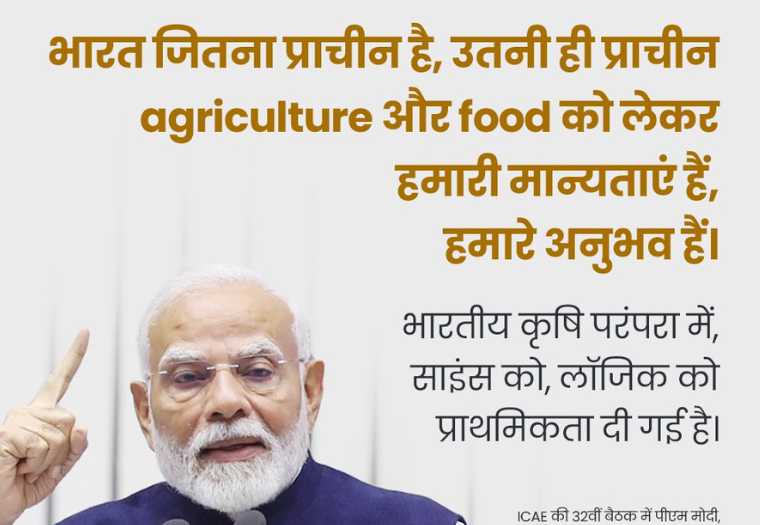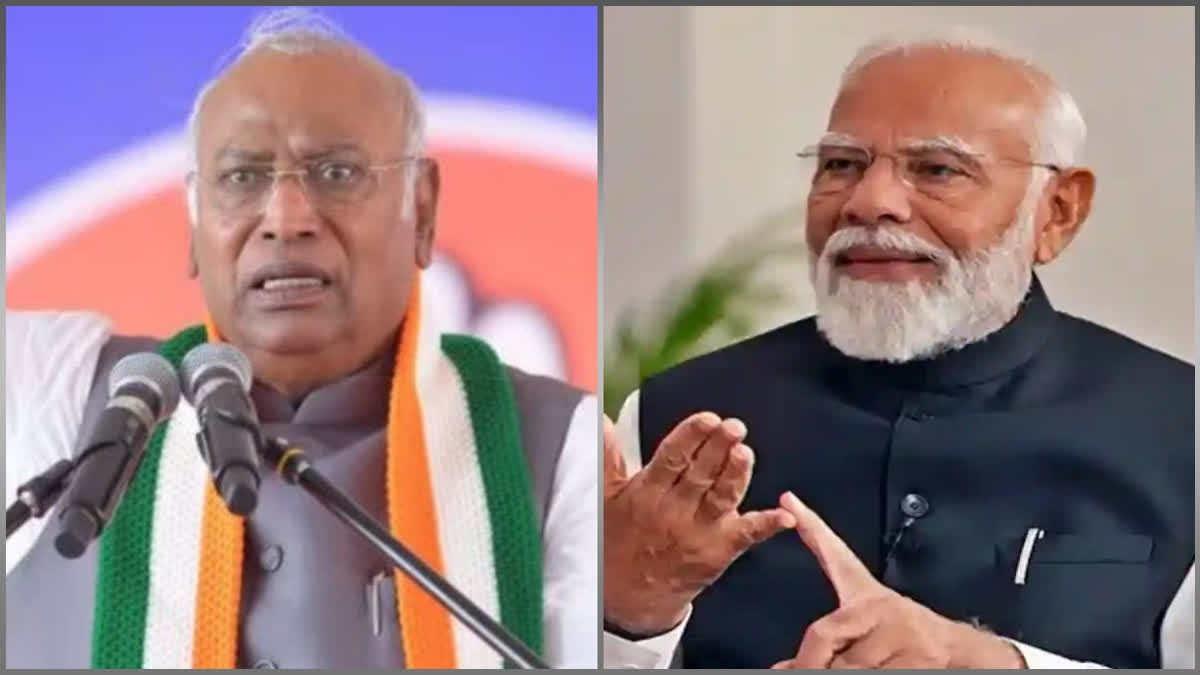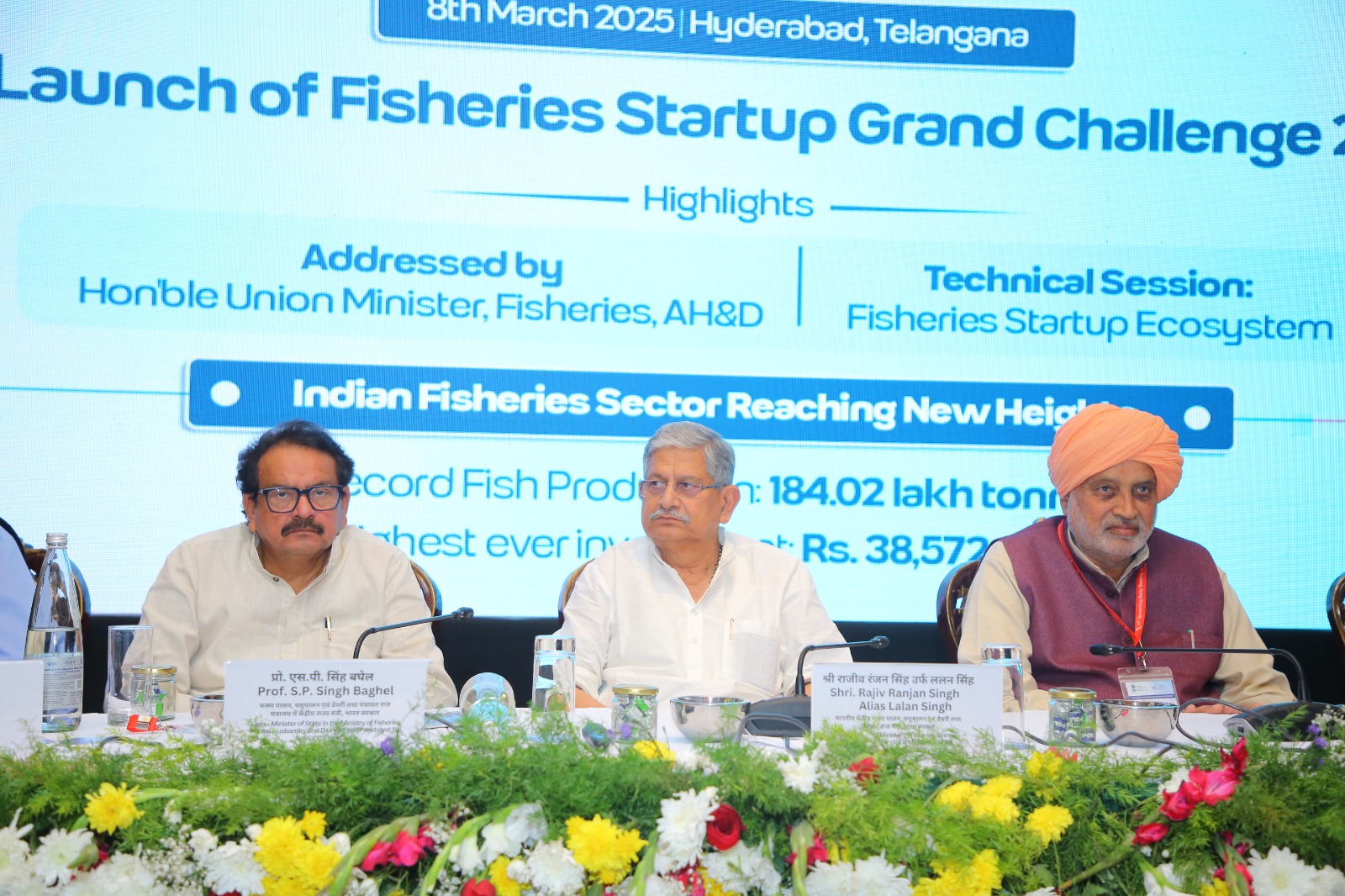Prime Minister Narendra Modi inaugurated the 32nd International Conference of Agricultural Economists (ICAE) at the National Agricultural Science Centre (NASC) Complex in New Delhi. This year’s conference theme, “Transformation Towards Sustainable Agri-Food Systems, addresses the urgent need for sustainable agriculture amidst global challenges like climate change, resource depletion, rising production costs, and conflicts. The event saw participation from around 1,000 delegates representing 75 countries.

In his address, Prime Minister Modi expressed his pleasure at hosting the ICAE in India after 65 years, welcoming dignitaries on behalf of the nation’s 120 million farmers, including over 30 million women farmers, 30 million fishermen, and 80 million animal keepers. Highlighting India’s agricultural diversity, he noted, You are in a land home to more than 500 million livestock. Welcome to the agricultural and animal-loving country of India.
The Prime Minister emphasized the enduring wisdom of ancient Indian agricultural practices, underpinned by science and logic. He cited “Krishi Parashar, a 2,000-year-old agricultural treatise, as an example of this rich heritage and pointed out India’s extensive agricultural research and education system, with over 100 ICAR research institutes, 500 agricultural colleges, and 700 Krishi Vigyan Kendras.
Highlighting India’s agro-climatic diversity, Modi noted the significant role of all six seasons in agricultural planning and the distinct qualities of India’s 15 agro-climatic zones. He remarked that agricultural produce changes every hundred kilometers, showcasing our nation’s diversity, crucial for global food security.
Reflecting on the last ICAE conference held in India 65 years ago, Modi spoke of India’s transformation from a food-insecure nation to a food-surplus one. Today, India is the largest producer of milk, pulses, and spices, and the second largest producer of food grains, fruits, vegetables, cotton, sugar, tea, and farmed fish. He highlighted India’s contribution to global food and nutrition security, emphasizing the country’s valuable experience in food system transformation.
Prime Minister Modi reiterated India’s commitment to global welfare, referencing the nation’s initiatives like ‘One Earth, One Family, and One Future, ‘Mission LiFE, and One Earth One Health. He stressed the holistic approach needed to tackle sustainable agriculture and food systems challenges.
Agriculture is at the center of India’s economic policies, Modi noted, emphasizing the importance of small farmers who make up 90% of the farming community. He highlighted the success of promoting chemical-free natural farming and the focus on sustainable and climate-resilient farming in recent budgets. Modi mentioned that nearly 1,900 climate-resilient crop varieties have been introduced in the last decade, including rice varieties that require 25% less water and black rice, a superfood from Manipur, Assam, and Meghalaya.
Addressing the nutrition challenge alongside water scarcity and climate change, Modi presented millet, or Shri Anna, as a sustainable solution. He expressed India’s readiness to share its millet basket with the world, noting the celebration of the International Year of Millets last year.
The Prime Minister also highlighted initiatives linking agriculture with modern technology, including the Soil Health Card, solar farming, the e-Nam digital agriculture market, Kisan Credit Card, and PM Fasal Bima Yojana. He mentioned the digitization of agriculture, with measures like the PM Kisan Samman Nidhi, digital crop surveys, and the promotion of drones in farming.
In conclusion, Prime Minister Modi expressed confidence in the outcomes of the conference, expecting fruitful exchanges on sustainable agri-food systems. Union Minister for Agriculture and Farmers’ Welfare Shri Shivraj Singh Chauhan, NITI Aayog Member Prof Ramesh Chand, Conference President Prof Matin Qaim, and ICAR Secretary Dr. Himanshu Pathak were present at the occasion.
Background
The triennial conference, organized by the International Association of Agricultural Economists, runs from August 2-7, 2024. This year’s theme, “Transformation Towards Sustainable Agri-Food Systems,” addresses the critical need for sustainable agriculture in the face of global challenges. The event highlights India’s proactive stance on agricultural issues, showcasing advancements in digital agriculture and sustainable practices. The ICAE 2024 provides young researchers and professionals a platform to present their work, fostering global partnerships and influencing agricultural policy.




